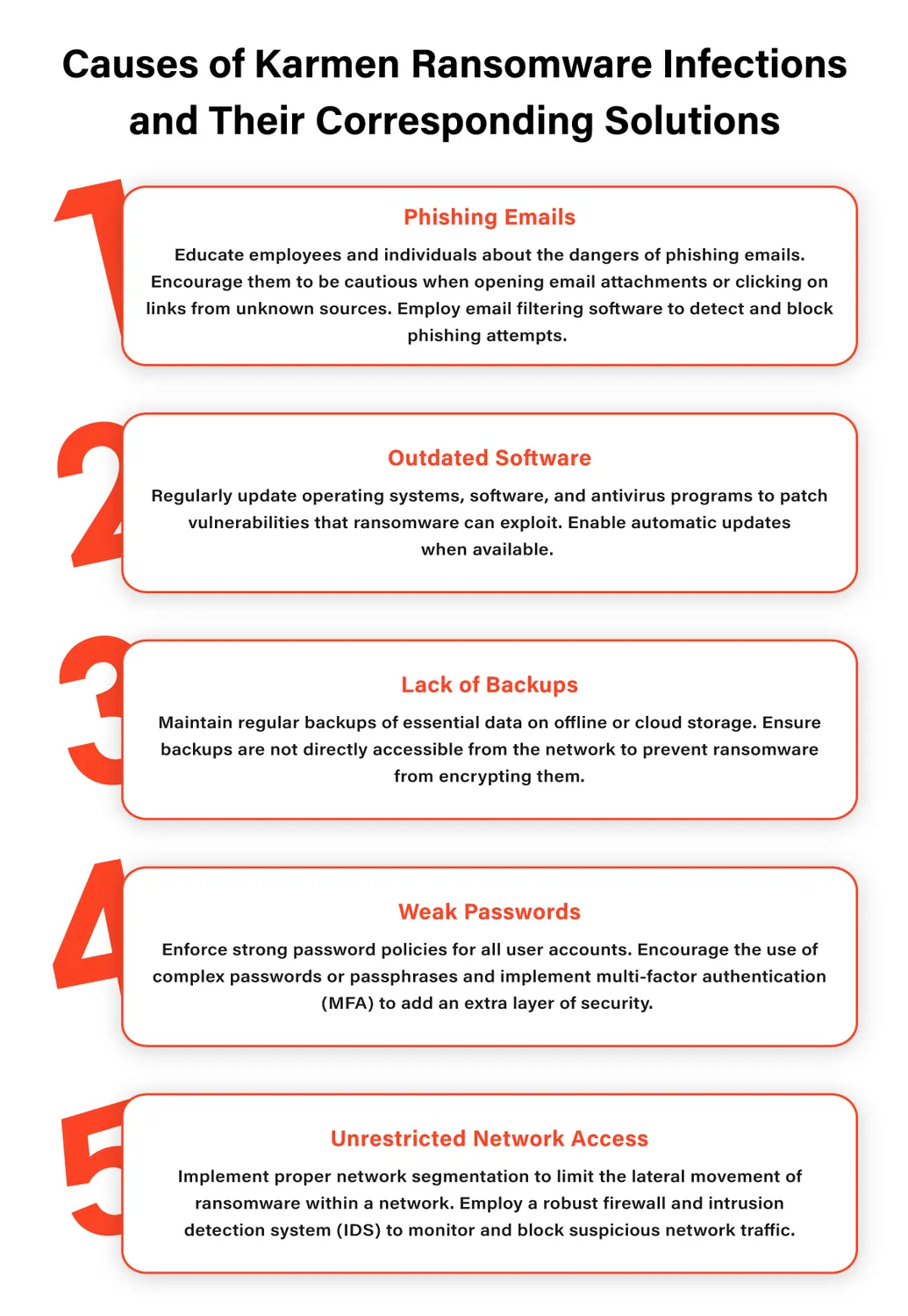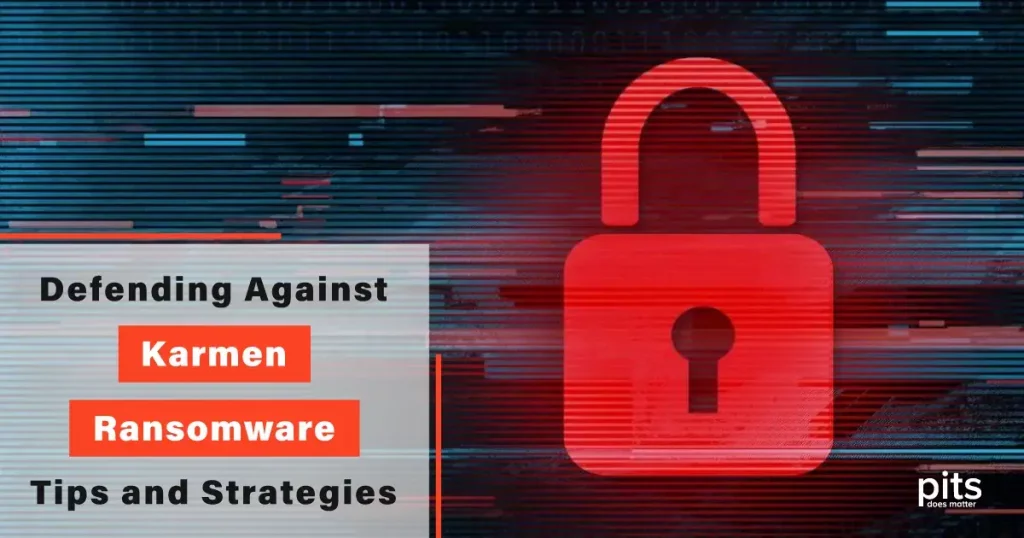In the ever-evolving landscape of cyber threats, ransomware attacks have emerged as a significant menace. These malicious programs, designed to encrypt valuable data and demand a ransom for its release, have wreaked havoc across the digital world. One such ransomware variant that made headlines in December 2016 is Karmen. In this blog post, we will delve into the origins, mechanics, and impact of Karmen ransomware, shedding light on the modus operandi of cybercriminals who employ this dangerous tool.
Origins of Karmen Ransomware
Karmen ransomware burst onto the scene in December 2016, catching the attention of security researchers and organizations worldwide. Like many ransomware variants, Karmen is believed to have been distributed through spam emails, malicious attachments, or compromised websites. What sets Karmen apart is its association with “ransomware as a service” (RaaS) – a chilling trend that allows cybercriminals to rent or purchase ransomware from underground forums, making it accessible to a wider range of malicious actors.

Mechanics of Karmen Ransomware
Like other ransomware, Karmen encrypts a victim’s files using a sophisticated encryption algorithm. Once the files are locked, a ransom note is displayed on the victim’s screen, demanding a payment in exchange for the decryption keys. The user is typically given a deadline to make the payment, after which the keys may be permanently deleted, rendering data recovery nearly impossible.
One of the interesting aspects of Karmen is its use of the Hidden Tear project, an open-source ransomware project, as a foundation. This indicates that the creators of Karmen might have adapted the code from Hidden Tear to develop their own malicious tool. The Hidden Tear project was initially designed for educational purposes but has unfortunately been exploited by cybercriminals for nefarious ends.
Impact on Victims
Karmen’s victims have mainly been located in the United States, where ransomware attacks have been particularly prevalent. Once an infected machine falls victim to Karmen, the consequences can be dire. Critical data may be rendered inaccessible, causing significant disruptions to businesses and individuals alike. The financial and reputational damage caused by such attacks can be devastating.
Decrypting the Situation
Dealing with ransomware attacks like Karmen can be incredibly challenging, but not all hope is lost. Security researchers and organizations have been working tirelessly to combat these threats. One approach involves the identification of vulnerabilities in the ransomware’s code or infrastructure, which can lead to the acquisition of decryption keys without paying the ransom. However, these efforts are not always successful, and victims are often faced with difficult decisions.
Countering Karmen and Ransomware Attacks
To protect against Karmen and other ransomware threats, it is crucial for individuals and organizations to implement robust cybersecurity practices:
1. Regular Backups
Maintain up-to-date backups of critical data to facilitate recovery in case of an attack.
2. Email Hygiene
Be cautious of unsolicited emails and avoid opening attachments or clicking on links from unknown sources.
3. Security Software
Install reputable antivirus and anti-ransomware software to detect and prevent such attacks.
4. Employee Training
Educate employees about the risks of phishing and the importance of cybersecurity hygiene.
5. Patch Management
Keep operating systems and software up to date with the latest security patches.
6. Network Segmentation
Segment networks to minimize the spread of ransomware in case of an infection.
Karmen ransomware, with its roots in the underground forums of cybercrime, is a potent reminder of the ever-present threats in the digital landscape. It serves as a stark warning to individuals and organizations to remain vigilant and proactive in defending against ransomware attacks. As security researchers and experts continue their efforts to unravel the mysteries of Karmen and similar threats, the fight against cybercriminals goes on with the hope of minimizing the impact of these malicious actors on the digital world.
Frequently Asked Questions
What is Karmen ransomware?
Karmen ransomware is a type of malicious software designed to encrypt a victim’s files and demand a ransom for decryption. It can render your data inaccessible until a ransom is paid.
How does Karmen ransomware infect my computer?
Karmen typically spreads through email attachments, malicious websites, or compromised software. It’s crucial to be cautious when opening email attachments or clicking on links from unknown sources.
Can I decrypt my files without paying the ransom?
Decrypting files without the ransom can be challenging. Some security researchers may find vulnerabilities, but it’s not guaranteed. Prevention through regular backups is your best defence.
How can I protect my computer from Karmen ransomware?
Protect your computer by keeping software up to date, using reliable antivirus software, practicing safe email habits, and maintaining regular backups of your important data.
